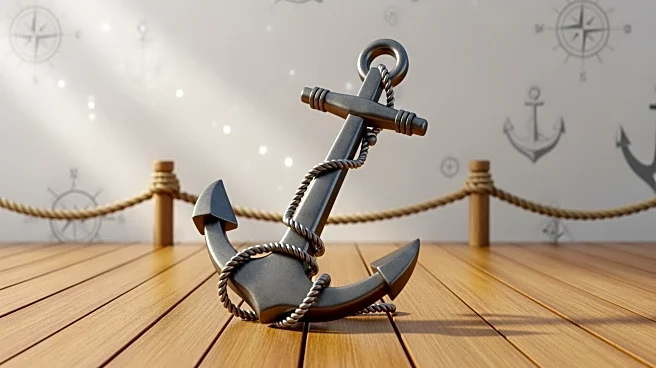What's Happening?
In an effort to rejuvenate America's maritime industry, local shipyards are being encouraged to self-nominate as Maritime Prosperity Zones (MPZs). This initiative is inspired by President Trump's Opportunity Zones and aims to attract investment through
tax incentives and regulatory relief. The move comes amid concerns over the U.S.'s reliance on foreign shipbuilders, particularly China, and aims to bolster domestic shipbuilding capabilities. Recent investments from South Korea and Japan have been secured, but further action is needed to sustain growth. The initiative calls for waterfront communities to take proactive steps in modernizing and expanding their shipbuilding and repair capacities.
Why It's Important?
The establishment of MPZs is crucial for strengthening the U.S. maritime industry, which is vital for national security and economic independence. By reducing reliance on foreign shipbuilders, the U.S. can enhance its strategic capabilities and create jobs in the maritime sector. The initiative also highlights the importance of regulatory relief and tailored incentives to attract investment and foster innovation. Successful implementation could lead to a revitalization of American shipyards, boosting local economies and reinforcing the country's position in the global maritime market.
What's Next?
As shipyards begin to self-nominate as MPZs, there will be a need for legislative support and sustained advocacy to ensure the initiative's success. The appointment of key positions, such as the assistant secretary of the Navy for shipbuilding, will be critical in driving the initiative forward. Additionally, the development of maritime innovation incubators and partnerships with international shipbuilders will be essential for achieving long-term growth and competitiveness. Stakeholders will need to collaborate to address regulatory challenges and secure the necessary investments.
Beyond the Headlines
The push for MPZs underscores the strategic importance of the maritime industry in national defense and economic policy. It also highlights the potential for innovation in shipbuilding, such as adopting additive manufacturing and nuclear propulsion technologies. The initiative could lead to a shift in how maritime infrastructure is developed, with implications for environmental sustainability and technological advancement.















